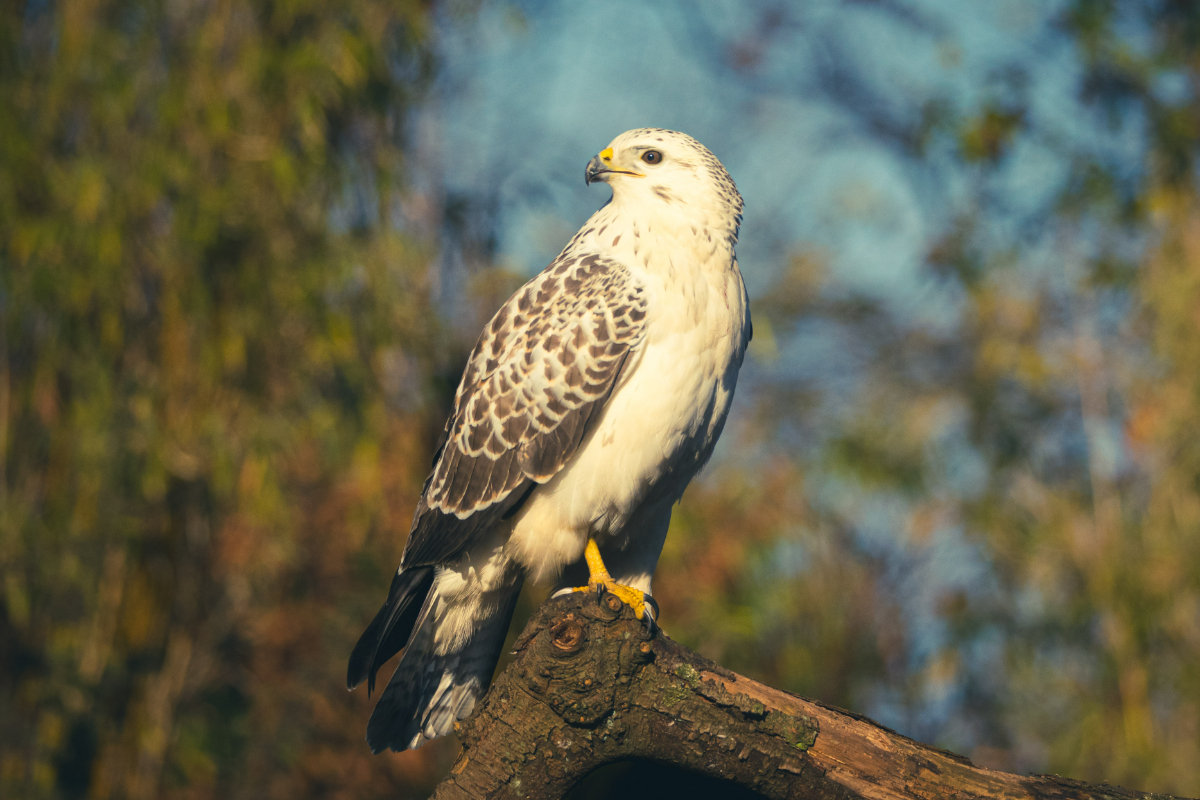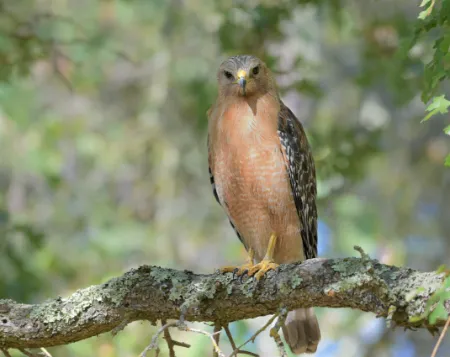Do Hawks Attack Humans? What To Do And Stay Safe

How many of you have realized that when we discuss interactions between humans and Hawks, a frequent question arises: “Do hawks attack humans?”
Despite the fact that hawks are extremely outstanding creatures recognized for their excellent hunting ability. They are not well-known for attacking people.
They are birds of prey that primarily hunt small animals such as rodents, birds, and reptiles. Yet, hawks have rarely exhibited aggressive behavior towards humans. Even so, it can attack you in some of the given circumstances.

Source: I Bautista (Pexel)
In this article, we will examine the intriguing world of human-hawk interactions. We will also underline the value of understanding and dealing with these magnificent birds of prey.
So, join us as we explore the dynamics of hawk behavior and address the question: Do hawks attack humans?
Understand Why Would a Hawk Attack a Human?
First of all, Hawk attacks on humans are extremely rare. It usually attacks when the hawk feels threatened or when someone disturbs its nesting area. But they are generally cautious and definitely will avoid any human contact.
During the nesting season, hawks may become more aggressive in defending their nests and young. If you inadvertently come too close to the nest of a Hawk, it might swoop down and attempt to drive you away. However, these attacks are defensive in nature and not intended to harm humans.
Further, these attacks on humans are often the result of misidentification or mistaken identity. Hawks rely heavily on their keen eyesight to spot prey.
However, sometime a hawk might mistake a person’s movements or appearance for prey. This can lead to a brief swoop or attempted attack.
It is very important to note that these incidents are rare. Most hawk encounters with humans are peaceful and without any aggression. Yet, if you encounter a hawk, it is best to observe it from a safe distance.
Will Hawks Attack Small Children?
As mentioned earlier, hawk attacks on humans are rare. Although it is extremely rare, it is possible for a hawk to attack a small child. However, it can happen under certain circumstances.
Hawks primarily rely on their keen eyesight to identify and target their prey. These preys are typically smaller animals such as rodents, birds, and reptiles. But, sometimes hawks can attack a small child due to confusion or misunderstanding. This can rarely happen and is not the usual behavior of hawks.
Some of the factors that could potentially contribute to a mistaken identity include:
- Unusual or erratic movements by the child
- If the child wearing clothing or accessories that look like prey items
- If the child is near an area where hawks normally hunt.
Additionally, if a hawk is already agitated or in a defensive state, it may be more likely to respond rashly and probably make a mistake.
Can A Hawk Pick Up a Human?
Certainly, the answer is no because hawks are not capable of picking up or flying humans. Hawks are excellent hunters, but they normally hunt prey that is smaller than an adult person.
Hawks mainly hunt down species that are within their size range, such as small mammals, birds, and snakes.
Has a hawk ever killed a human?
No, there are no confirmed reports of a hawk killing a human. They are not capable of defeating and killing a healthy adult human. Their physical capabilities, including their size and strength, are not suitable for such an action.
However, one thing that Hawks can definitely do is, they can injure you. For example, if you unknowingly irritate a Hawk, it might injure you. Especially if it catches you off guard.
What Diseases and Infections Can Be Spread by Hawks?
Just like any other wild bird, Hawks can also transmit certain infections and diseases. Here are a few examples of diseases that can be seen with hawks are given below:
- Avian Influenza (Bird Flu): Hawks can be carriers of avian influenza viruses, which can sometimes infect humans. However, the transmission of this flu from birds to humans is rare. It usually occurs through close contact with infected bird discharges or infected environments.
- Salmonellosis: Hawks may carry Salmonella bacteria, which can cause salmonellosis in humans. It happens when a person contacts hawk droppings or contaminated surfaces.
- Cryptococcosis: It is a fungus found in bird droppings including hawks. It causes a respiratory infection called cryptococcosis in humans. Further, It creates trouble for people with weakened immune systems.
- Histoplasmosis: It is a fungal infection that causes histoplasmosis in humans. It generally happens when someone inhales fungal spores present in bird droppings. It is mainly present in areas where there are large populations of birds.
If you encounter a hawk or its droppings, it is generally advisable to observe from a safe distance. Also, avoid touching or disturbing them.
Can You Kill a Hawk If It Attacks You?
The response to this question is No, you cannot kill a Hawk. It is important to note that hawks are a protected species in many areas.
That is why It is illegal to kill them without proper permits or authorization. If you kill a hawk, authorities can charge you and impose heavy fines.
That’s why lethal force should only be considered as a last resort if your life is in immediate danger. Even then, it is recommended to contact local authorities for assistance.
How To Avoid Hawk Attacks?
To avoid hawk attacks, you can take several precautions. These guidelines can help ensure your safety:
Maintain a safe distance
Keep a respectful distance from hawks, especially if you come across one in the wild. Avoid approaching or disturbing their nests and give them space to carry out their natural behaviors undisturbed.
Avoid sudden movements
Hawks can be startled by sudden movements, so try to move calmly and avoid making quick, jerky motions if you are near a hawk. Sudden movements may trigger defensive responses.
Use visual deterrents
If you have concerns about hawks frequenting your property, you can employ visual deterrents. Not only Hawks but many birds are very uncomfortable with visual deterrents. They tend to avoid these deterrents when they see it. These deterrents include reflective objects, shiny materials, or scarecrows.
Educate yourself and others
Learn about appropriate behavior around hawks and wildlife to cut potential conflicts.
What Are Hawks Afraid Of?
Hawks are predators themselves, and they are not easily scared by other animals. However, there are certain factors that can make hawks cautious. Here are some factors that may change hawk behavior:
Larger birds of prey
Some of the bigger predatory birds like eagles or owls can pose a potential threat to hawks. Hawks generally avoid areas where these larger birds are present.
Human presence
Hawks generally do not like areas where there is high human activity and disturbance. They often avoid these areas.
Visual deterrents
Not only Hawks but many birds are very uncomfortable with visual deterrents. They tend to avoid these deterrents when they see it. These deterrents include reflective objects, shiny materials, or scarecrows.
FAQs
Do Hawks attack humans?
Hawk attacks on humans are extremely rare. It usually attacks when the hawk feels threatened or when someone disturbs its nesting area.
Are Hawks friendly to humans?
Generally, Hawks are not friendly toward humans. They mostly avoid human contact.
What to do if a hawk attacks you?
If a hawk attacks you, seek immediate shelter. Avoid direct contact with the bird by moving indoors or under a covered place if feasible.






